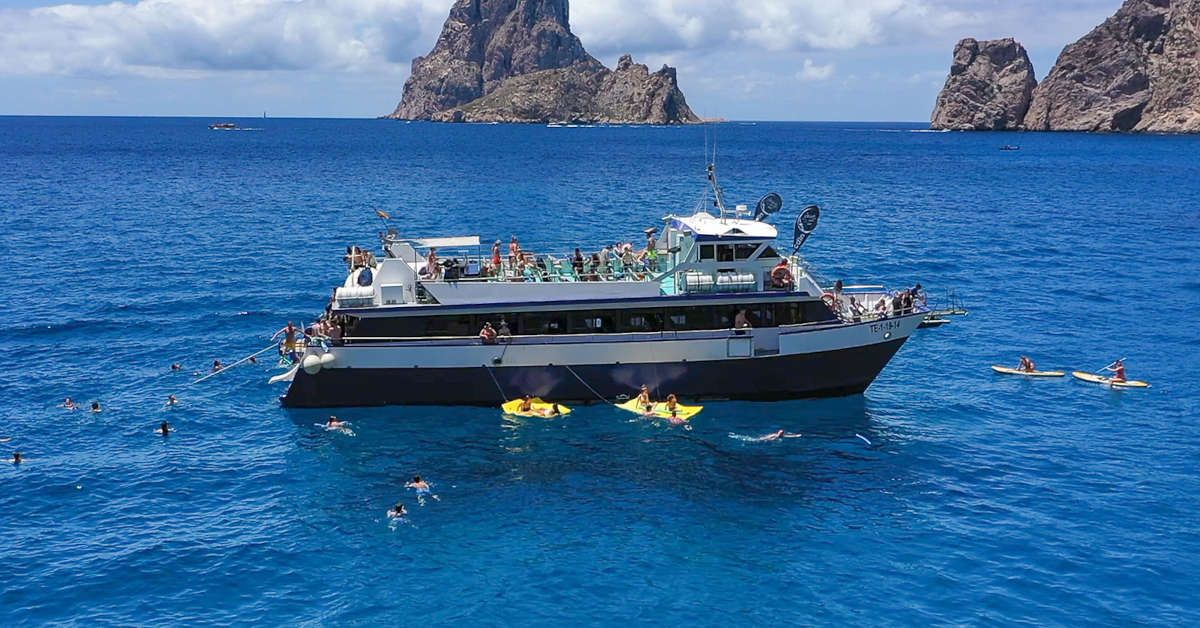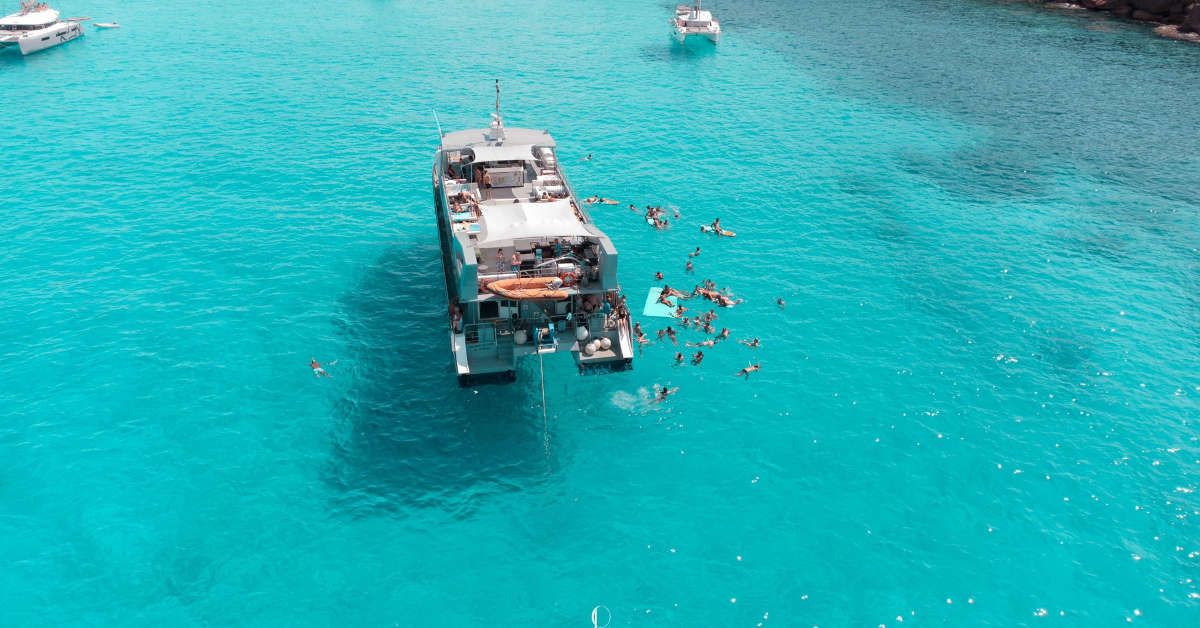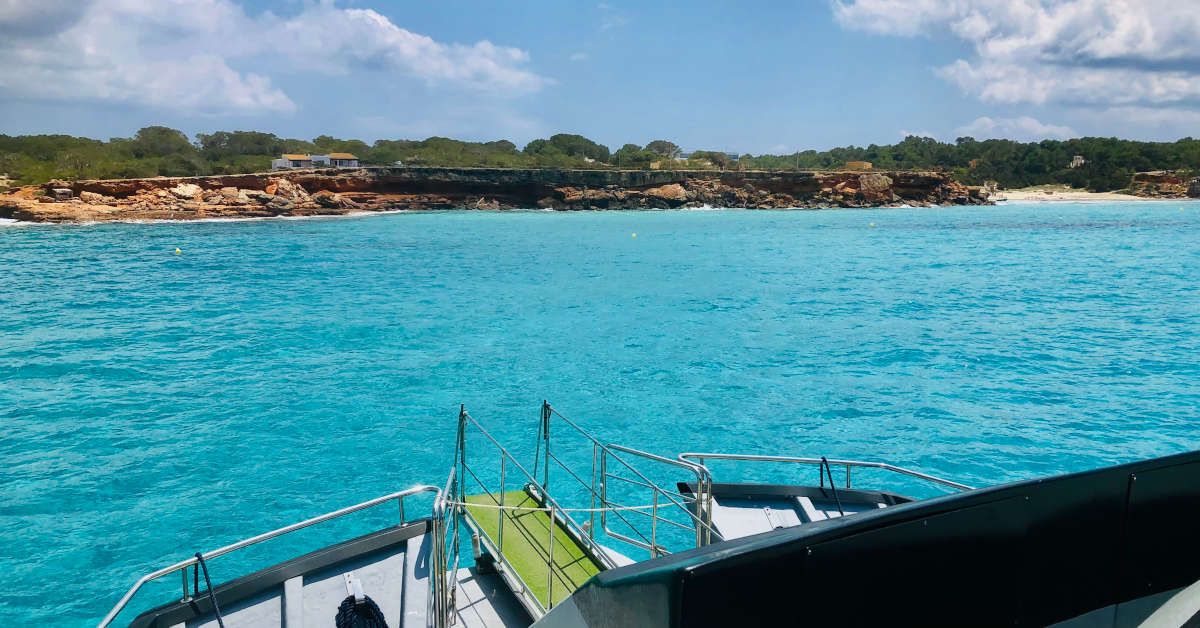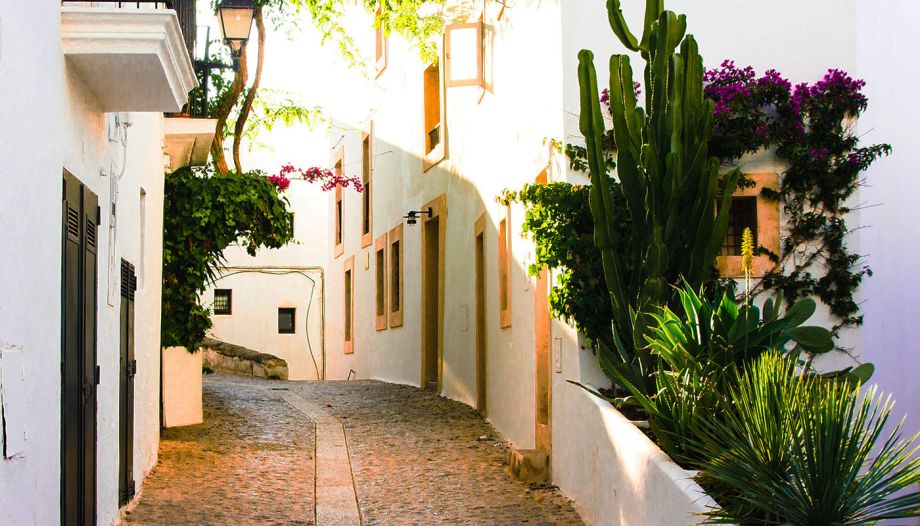
10 curious facts about Ibiza that you may not know
It is very probable that if you are on holiday in Ibiza you will get to know the main attractions of the island: sun and beach, nightlife, tremendous gastronomy and unique natural enclaves.
Beyond being the "island of two faces", Ibiza has a lot of history and some anecdotes that may surprise you...
Here we go with this list of 10 Ibiza curiosities!
Ibiza has a (very) multicultural past
Phoenicians, Carthaginians, Arabs, Romans, pirates, Christians, ... Our island has witnessed the most important cultural exchanges (and clashes) in history, which is why Ibiza's architecture and folklore are unique in the Balearic Islands.
Today Ibiza is still considered an open and cosmopolitan island after the "hippy boom", but the truth is that this character comes from much earlier.
Ibiza has not always been called Ibiza
A direct consequence of this multicultural past is the very name of the island. During its existence, Ibiza has been called Aivis, Ebusus, Ibosim, Insula Augusta, Yebisah, ...
Until today's Eivissa or Ibiza. Aren't these names curious?
3. The goddess of Ibiza is called Tanit and is a woman
It is on our island where more statues of this mythological character have been found throughout history. In Ibiza, the goddess Tanit has been venerated from the 5th century BC until the 2nd century AD.

Photo credits: Museo Arqueológico de Ibiza y Formentera
This is due to the strong Carthaginian influence (Tanit is the patron saint of Carthage and represents fertility) of the island. Today it is still the protagonist of many local artworks.
4. It is called Pitiusa because it has many...
Pitys. They're nothing but pine trees. The association comes from the Greek era ("pitys" is a word that comes to mean "pine forests") and has been preserved today.
And yes, Formentera is also a pitiusa, because there are also plenty of pines! Visit it on our Ibiza Formentera boat.
5. A typical dance of uncertain origin
Although the "ball pagès" (peasant dance) exhibitions in Ibiza are abundant and continue to be at the centre of the island's own culture, the truth is that its origins are not very clear.
Historians and academics place them in pagan rites of ancient times, most probably uninfluenced by other religious rites of ancient times.
6. Ibiza has more coastline than Barcelona (seriously)
And that many other cities you wouldn't say. Although it may seem like a small island (the maximum distances are 41 kilometers from north to south and 15 kilometers from east to west), its length of coastline is...
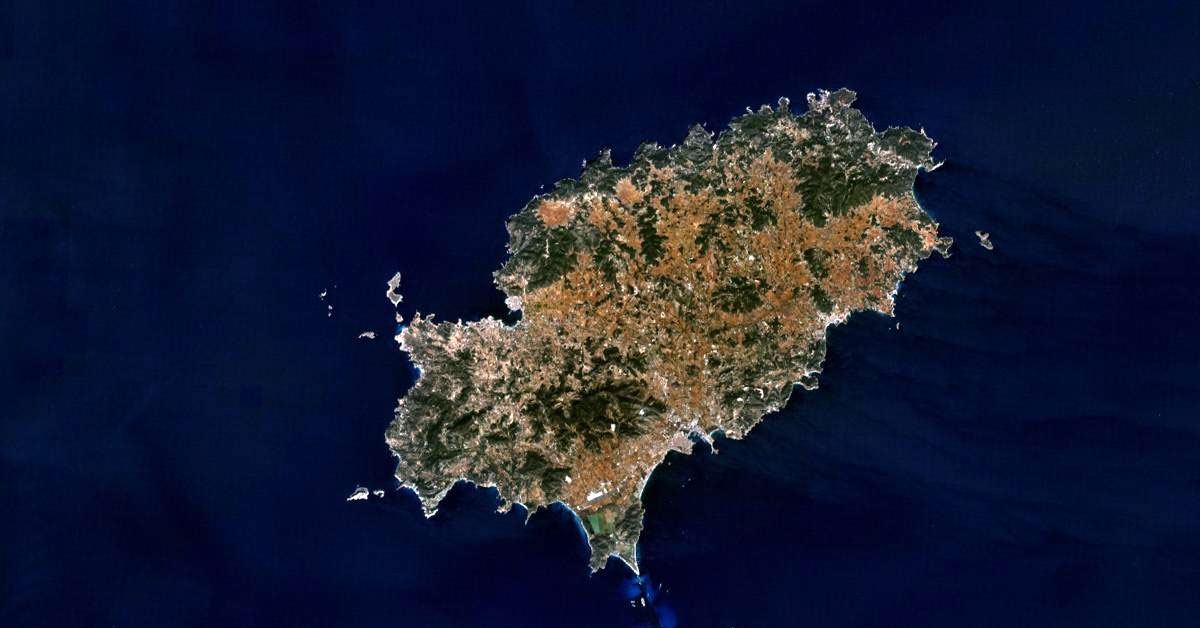
Photo credits: Wikipedia
210 kilometers. Almost 50 kilometres more than Barcelona (which has "only" 151km). Curious, isn't it?
7. Ibiza is a World Heritage Site (for many reasons)
Not only because of the wonderful historical and walled complex of Dalt Vila. Also it is it for being one of the places where the threatened prairie of posidonia is better conserved.
And for being a very important place for migratory birds. And for having a Phoenician-Punic necropolis in Puig des Molins. And for the Phoenician site of Sa Caleta, Ibiza is history!
8. Typical houses are white for a reason
And it is none other than to use lime to paint and protect the structures of traditional houses or country houses.
Nowadays it is not so common to use this method for new constructions, although the tradition of "whitewashing" the houses a couple of times a year is being recovered.
9. Ibizan is the closest thing to ancient Catalan
Maybe due to lesser peninsular influence, or maybe due to other reasons... But the truth is that the official dialect of the island (Ibicenco or eivissenc) is the variety of Catalan that most resembles the archaic version of this language.
It is also curious that the articles "el" or "la" are salted (that is, they are replaced by "es" or "la") only in the Balearic Islands and in a remote area of Catalonia (Cadaqués, to be more specific).
10. There are still myths about the islet of Es Vedrà
And it seems that the magic and mysticism of this place will last a long, long time.

We explained it to you in this article: 5 myths and legends about the islet of Es Vedrà. Don't miss it!














